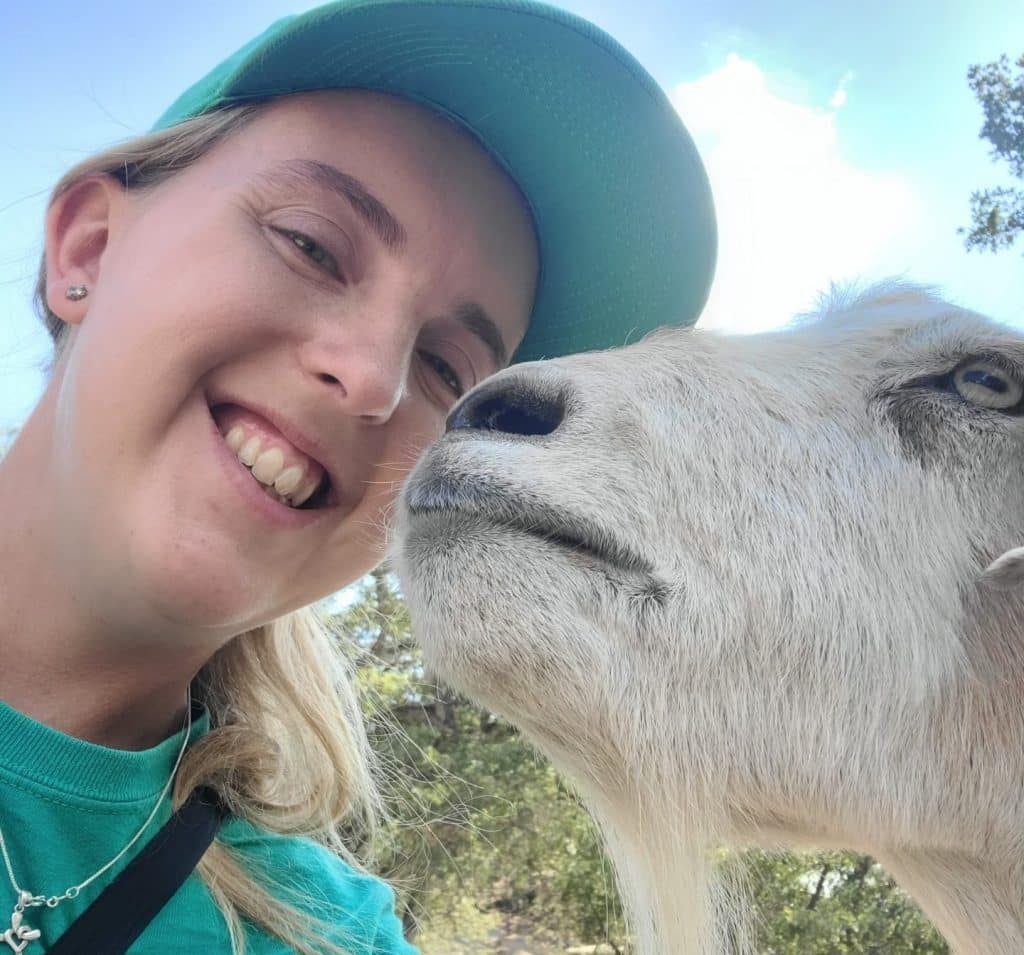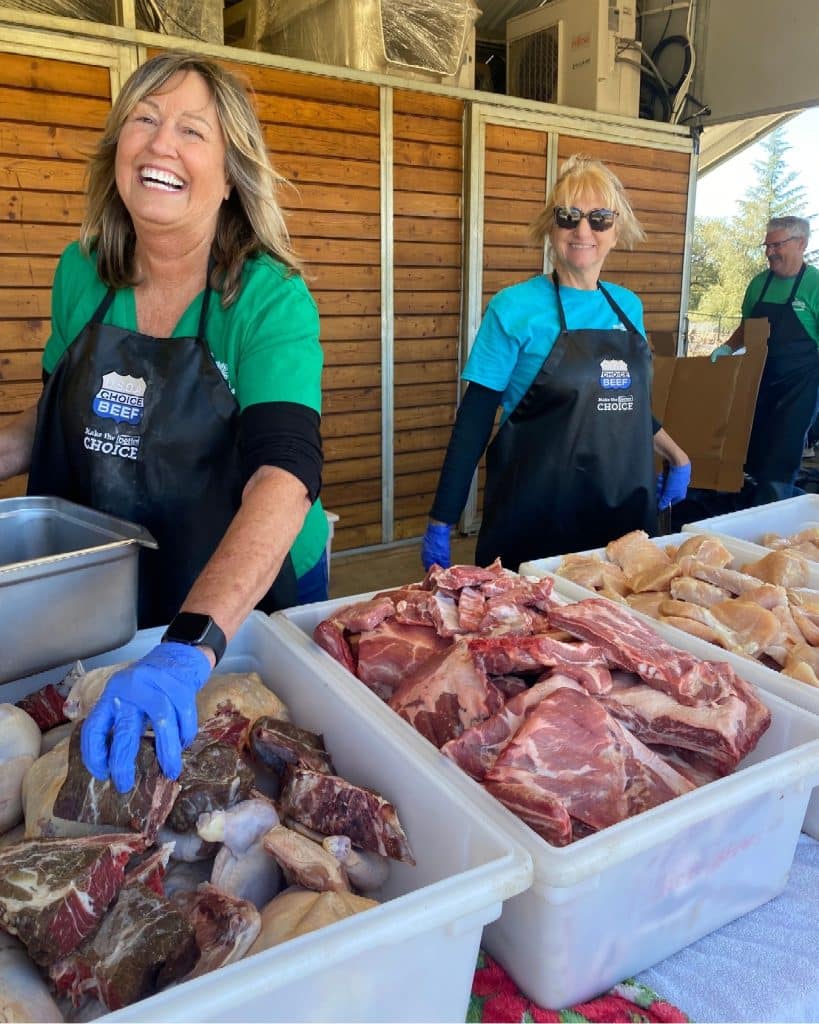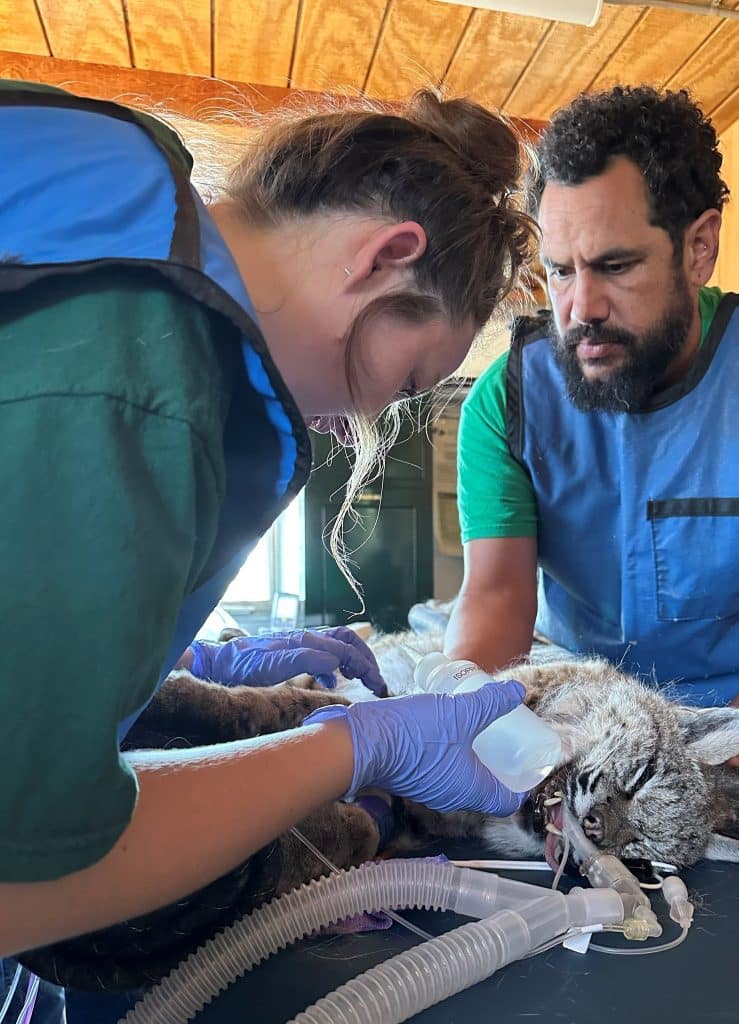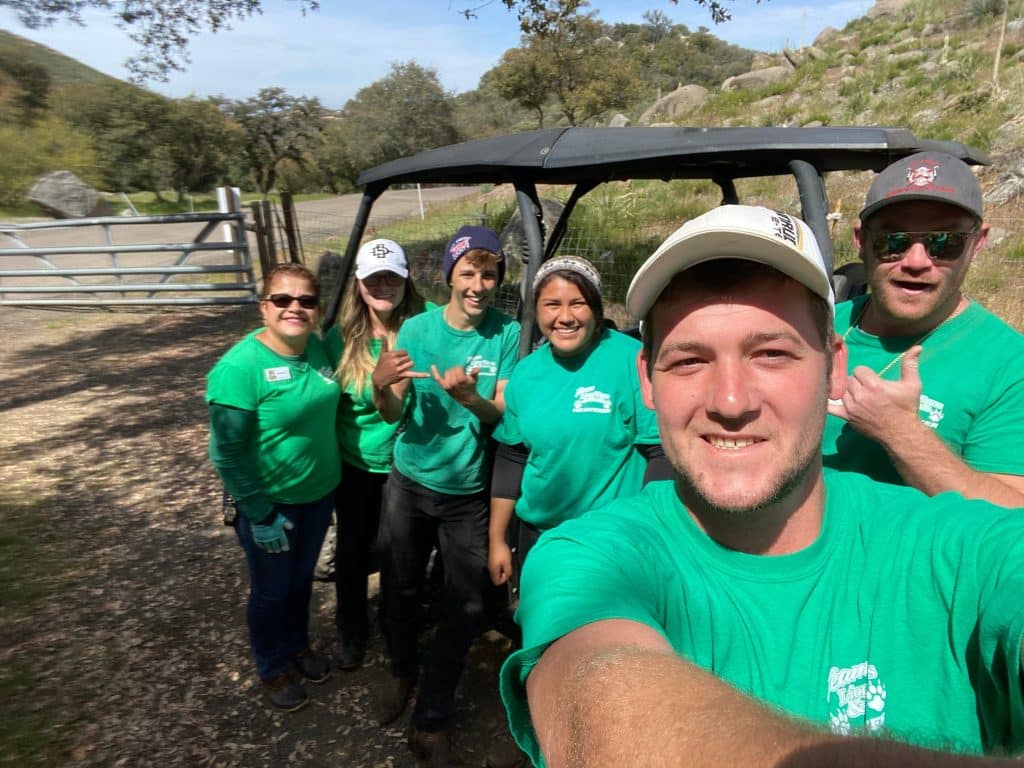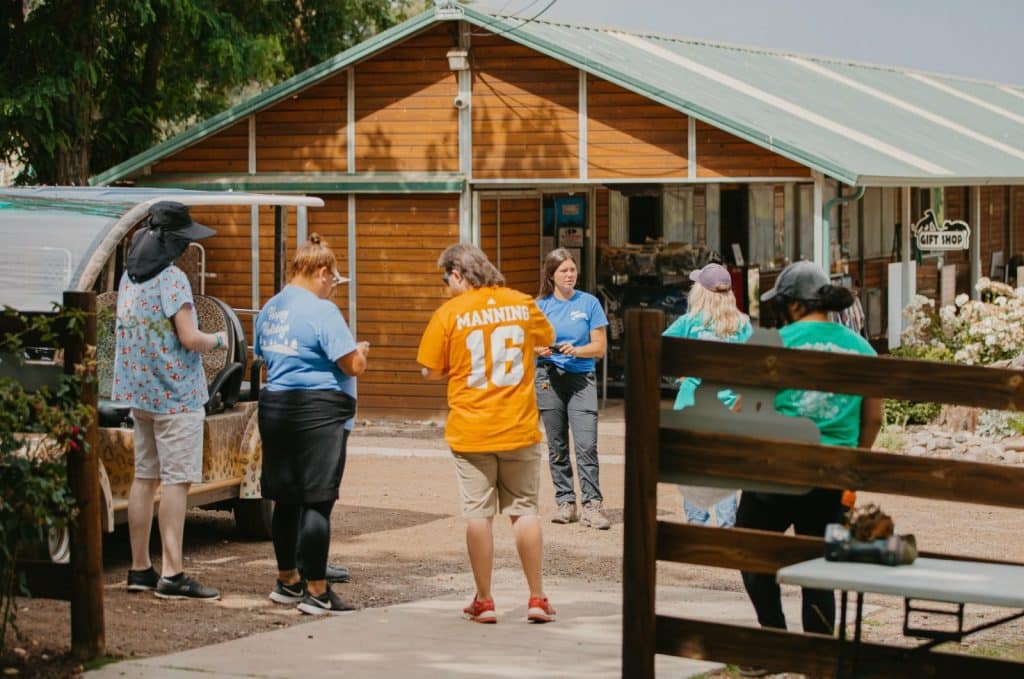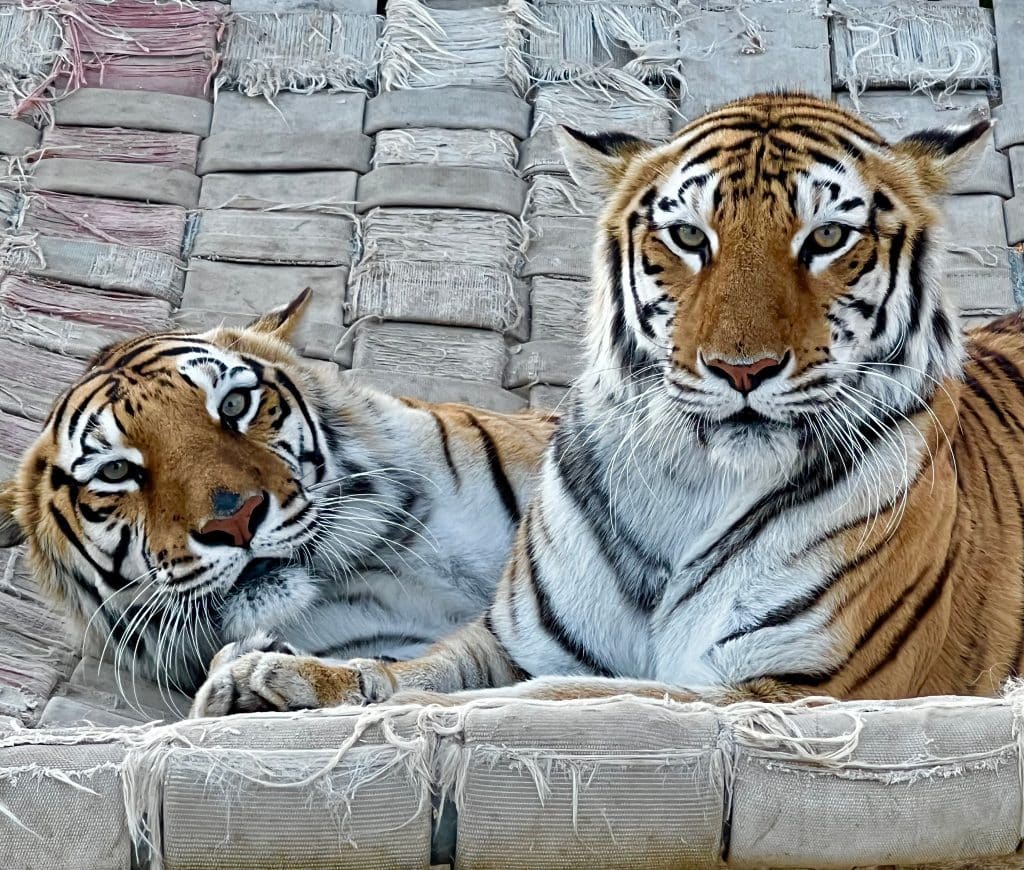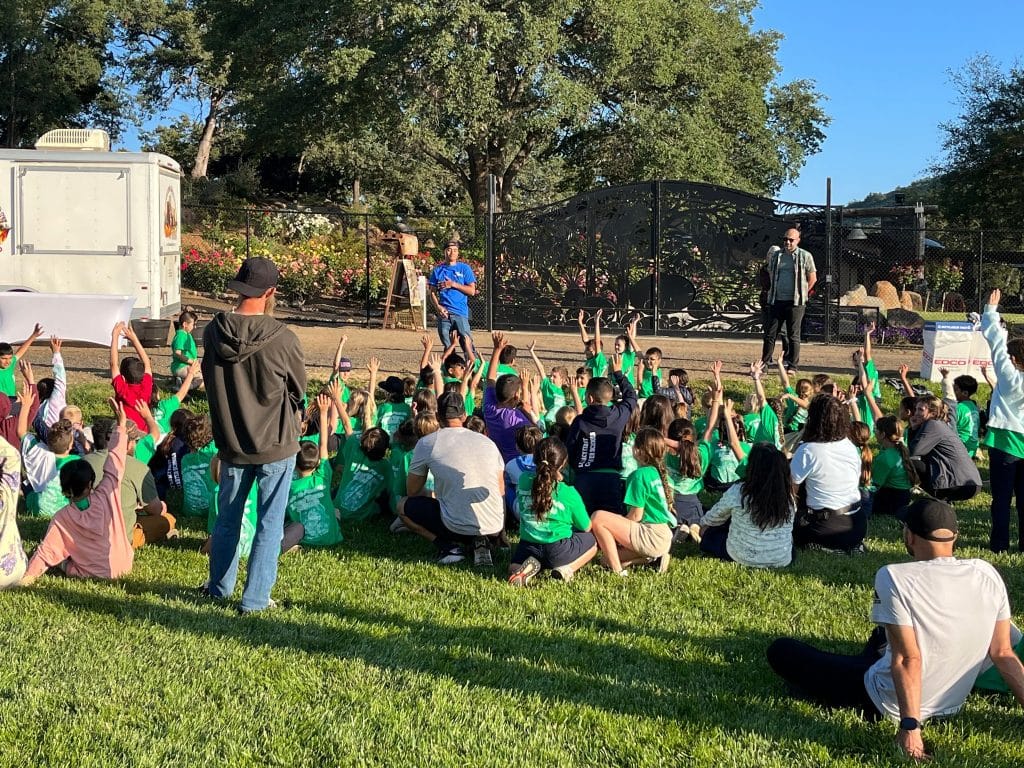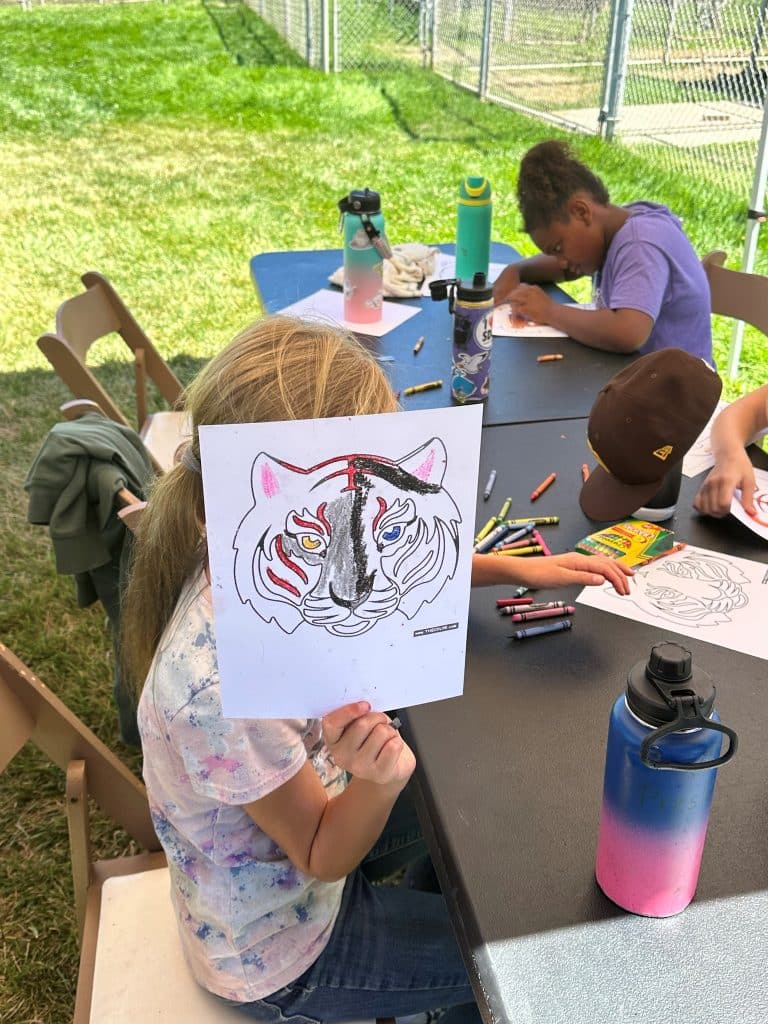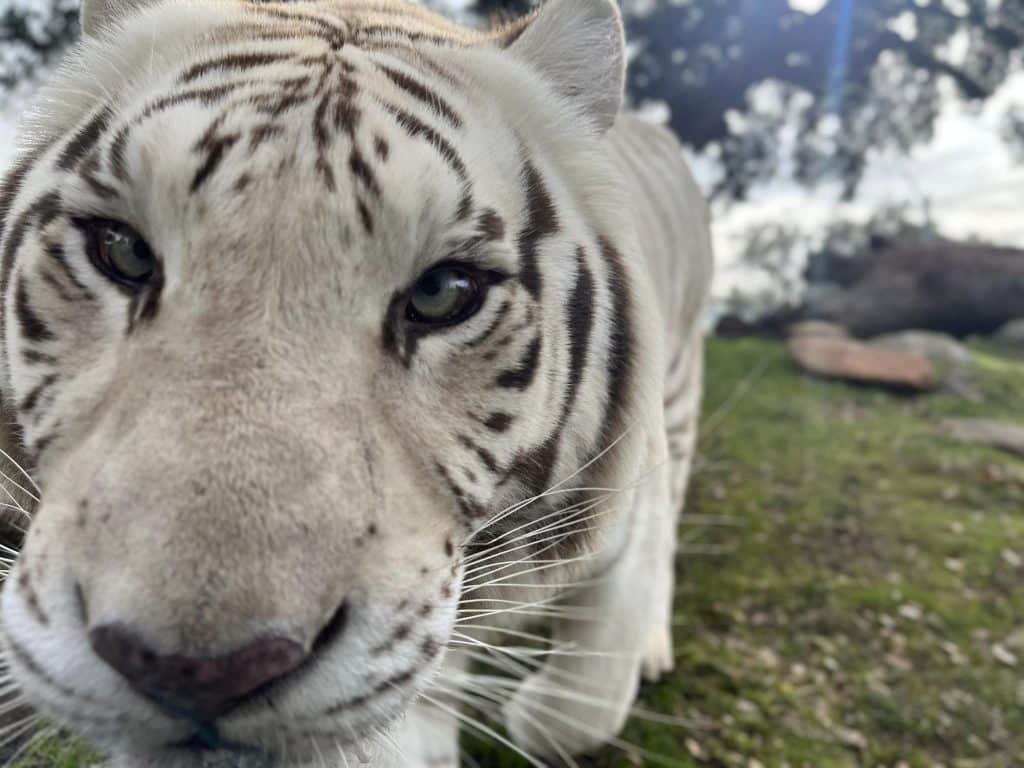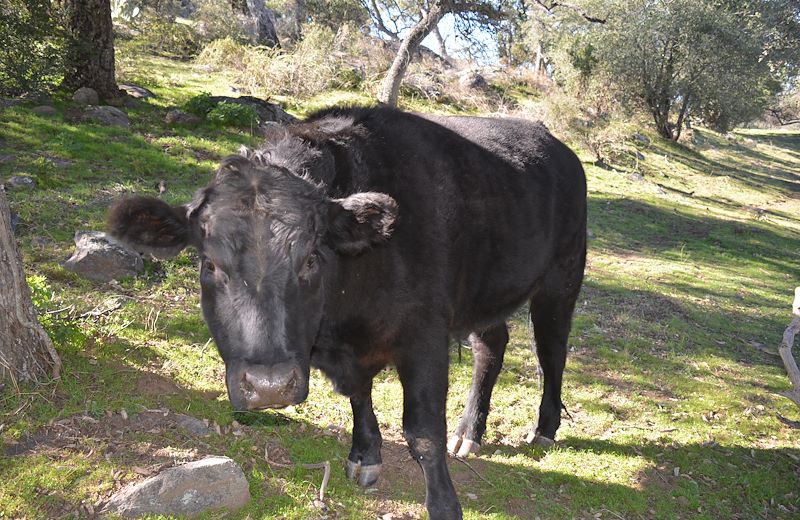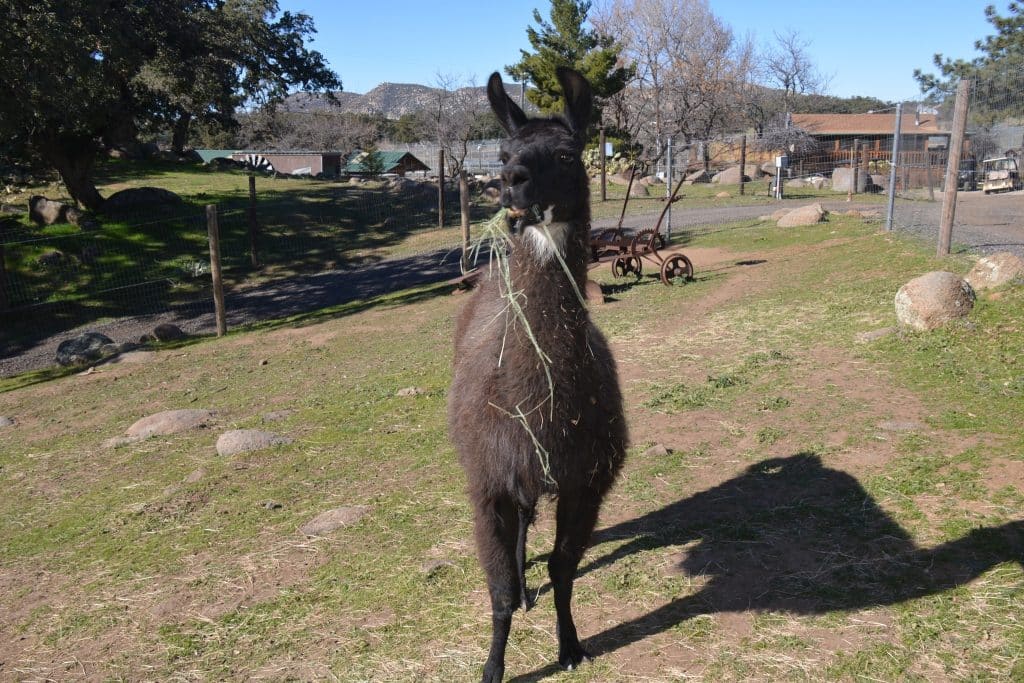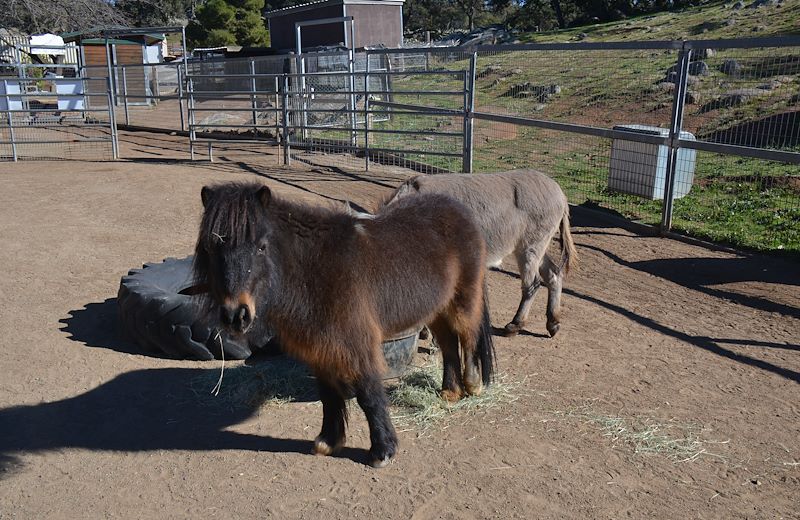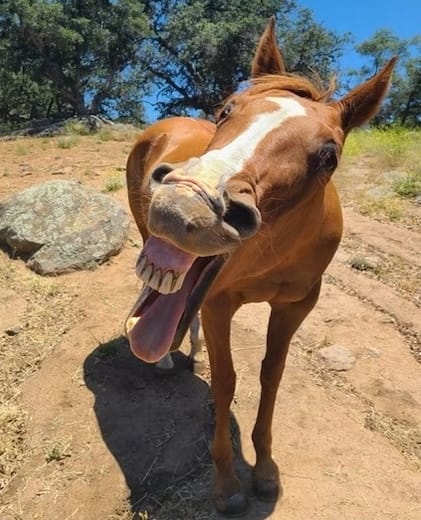Veterinary Care for Health & Wellness at our San Diego Animal Sanctuary
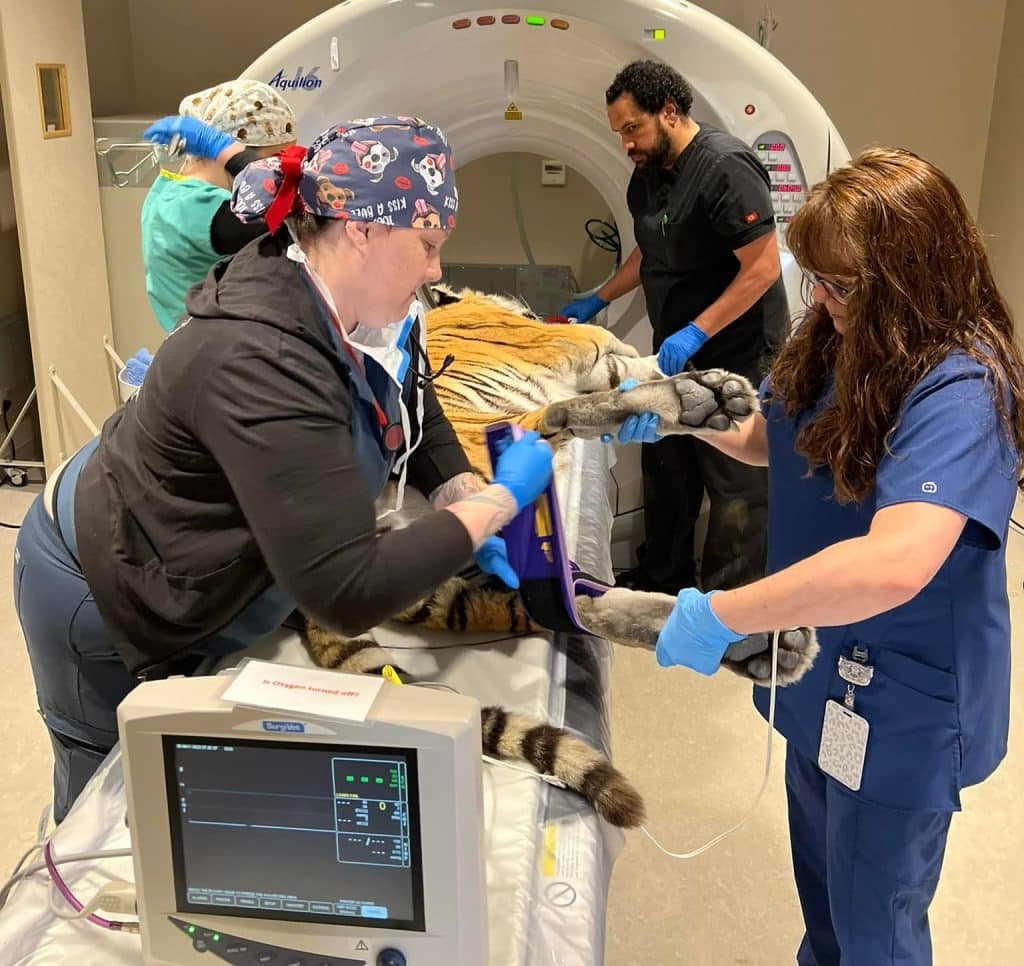
At our San Diego Animal Sanctuary, we have a team of expert vets and caregivers who provide each animal with the care, attention, and specialized treatment they need to recover and thrive. In this post, we’ll look closer at the essential role veterinary care plays in keeping the exotic animals at our sanctuary healthy and happy.
The animals in our care come from some of the most heart-wrenching circumstances you can imagine:
- Rescued from illegal wildlife trade
- Abandoned by owners who didn’t understand the responsibility and difficulty of keeping an exotic pet
- Found injured or orphaned in the wild with little chance of survival
- Overcrowded roadside zoos
Each one of the animals has faced immense challenges—but their stories don't end there.
Before we begin, we want to thank our amazing supporters. Your generous donations make our animal rescue and care possible, and because of you, these animals have received a second chance at life.
The Role of Veterinarians at Our Sanctuary
Here are some of the key roles that our veterinary team plays to ensure the health and wellness of our resident animals:
They Offer Day to Day Animal Care Service
Our primary care vets and keepers are like the family doctors of the sanctuary. Every morning and afternoon, they check on each animal to ensure they eat well, move comfortably, and generally feel good. These daily check-ins are super important when dealing with animals because they can’t advocate for themselves. Besides, exotic animals, like our mountain lions, tigers and bears, can be really good at hiding when something’s wrong. So, it’s up to them to catch any signs of trouble early.
They also handle routine stuff like vaccines, parasite control, and even dental care. This kind of preventative care is what helps keep the animals from getting sick in the first place. It’s simple but crucial, especially for animals who’ve come from tough situations like the illegal wildlife trade or overcrowded roadside zoos.
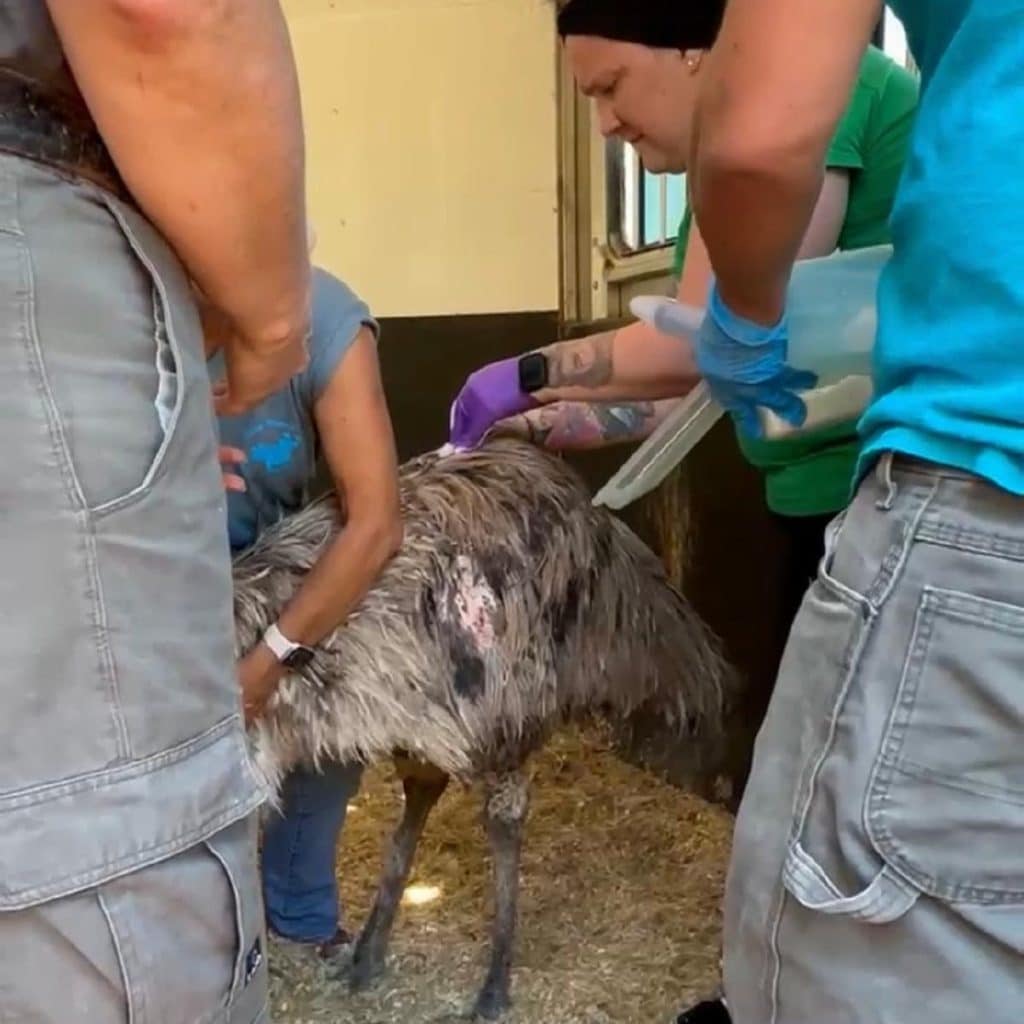
They’re Experts in Exotic Animal Care
Exotic animals need a special kind of vet. Our wildlife veterinarians have undergone extensive training and have deep knowledge of specific species in our care. This means they can know if a tiger has a stomach problem or a bear has a joint issue. They also know exactly what to do because they’ve spent years learning about these animals.
Each species is different, and so is their care. Our vets understand these differences and tailor their care to fit each animal’s specific needs. They’re the reason we confidently say we truly care for the animals at our sanctuary.
They Perform Life-Saving Surgical Procedures
Some animals come to us with serious injuries or health problems. Our veterinary care team can perform life-saving surgeries, helping animals recover from injuries or illnesses that might otherwise be too much for them to handle.
For example, we’ve had animals come in with metabolic bone disease, malnutrition or serious infections from being declawed and living in terrible conditions. Our surgical vets do everything from fixing those bones to removing harmful tumors. Their work literally gives these animals a second chance at life, and watching an animal recover and thrive after surgery is one of the most rewarding things we get to see.
They Help Animals Heal and Thrive
Beyond surgeries, our wildlife rehabilitation also helps animals regain strength. The vets and keeper staff take the animals through physical therapy, which includes special exercises, diets, enrichment activities, etc., to help the animals rebuild their muscles and regain full health.
They Offer Specialized Care for Long-Term Health
Not every animal’s health issue is straightforward. Some of them come to us with chronic conditions that require ongoing care, like arthritis in older wild bears or digestive issues in serval cats. Our specialized care vets focus on these more complex health needs, giving the animals the extra attention they require to live comfortably.
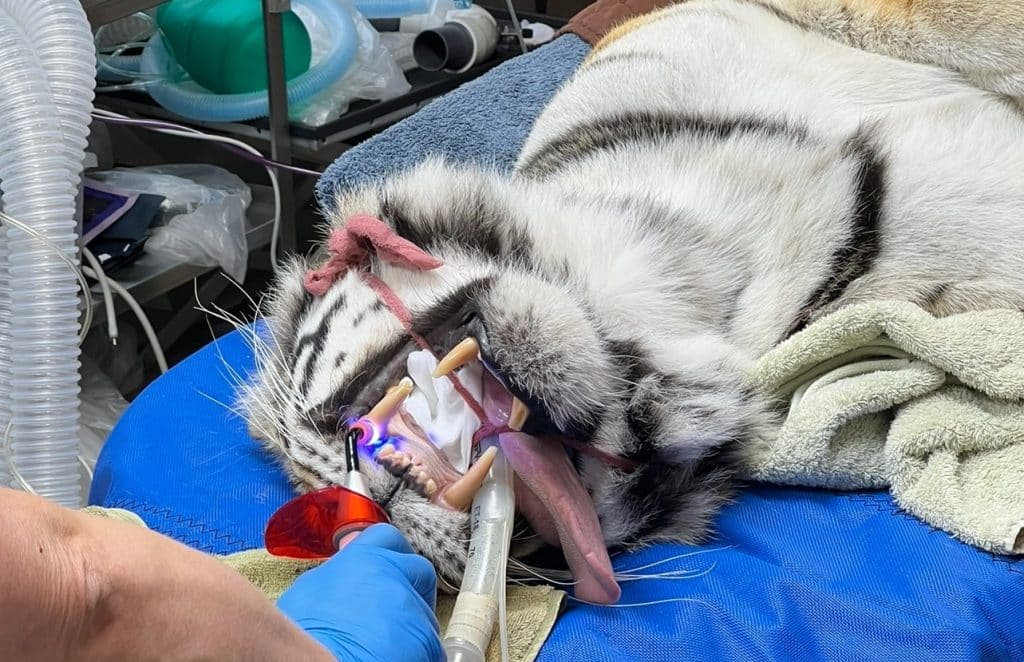
They Offer Emergency Care Services
No matter how prepared we are, emergencies happen. Animals get hurt, and illnesses flare up suddenly. Our emergency staff are always ready, day or night, to handle whatever comes their way. When something goes wrong, they’re the ones who assess the situation quickly and decide on the best course of action.
Maybe it’s a wild bear with a deep cut that needs immediate stitching or a bobcat with an infection that flared up overnight. These vets stay calm under pressure and are trained to handle anything, ensuring the animals get the urgent care they need right when needed. Their quick thinking and fast actions can make all the difference in saving a life.
They Research New Medicines
Our vets are always staying on top of the latest science to figure out better ways to keep the animals healthy and safe from diseases. It’s not just about treating the animals we have right now—it’s about discovering new ways to care for them and improve their health for the future.
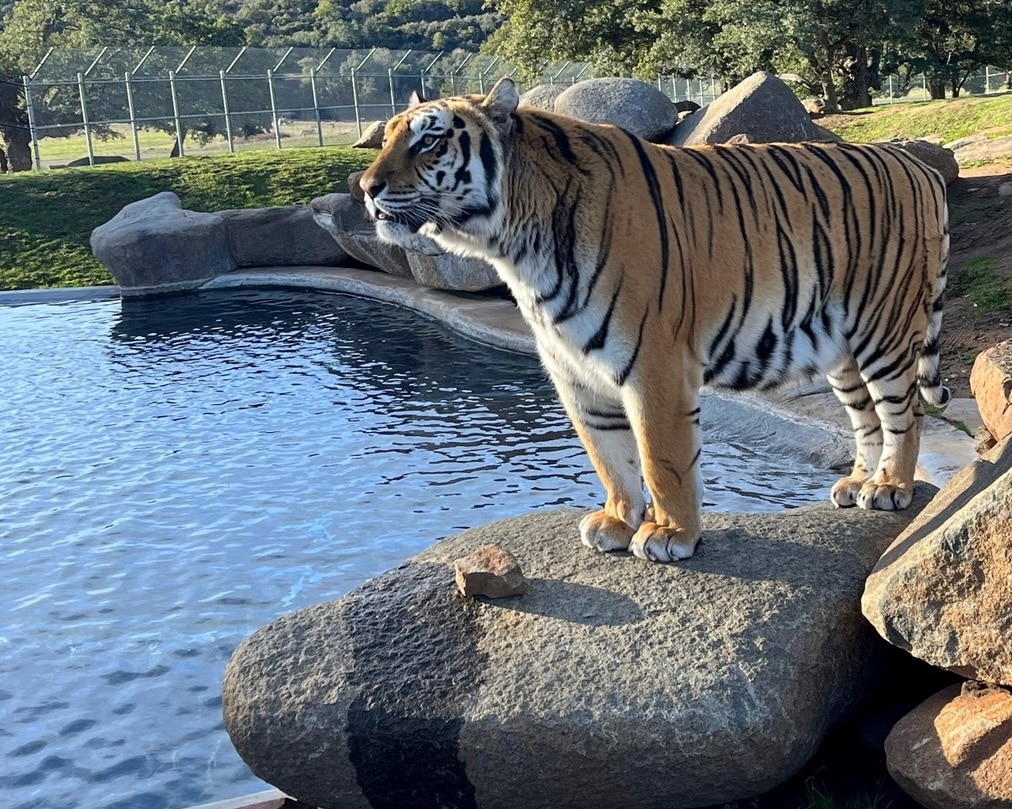
At Lions Tigers & Bears, every vet and keeper plays an important part in keeping our animals healthy and happy. Whether performing regular check-ups, performing life-saving surgeries, or giving specialized veterinary care to animals with long-term needs, they all work toward the same goal—helping these incredible animals recover and live better lives. It’s a full-time team effort, and we’re so proud of the passion and dedication our vets bring to their work daily.
But honestly, none of this would be possible without the support of people like you. Running the sanctuary and providing this level of care takes a lot of resources. Veterinary medicine, test tools, equipment, transport, etc., are all quite costly. If you feel inspired by what we do, we’d love for you to join us in helping these animals by donating today. Every bit makes a difference and directly supports the animals we care for. You can join us by visiting our website and clicking the “Donate” button. Together, we can give these animals the second chance they deserve.
